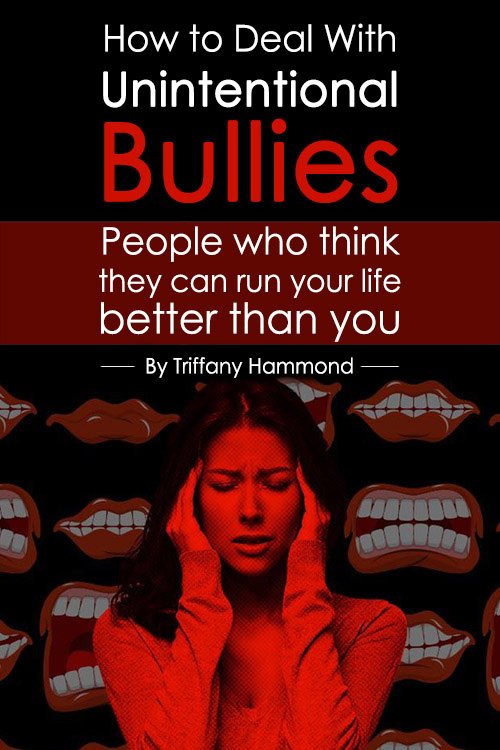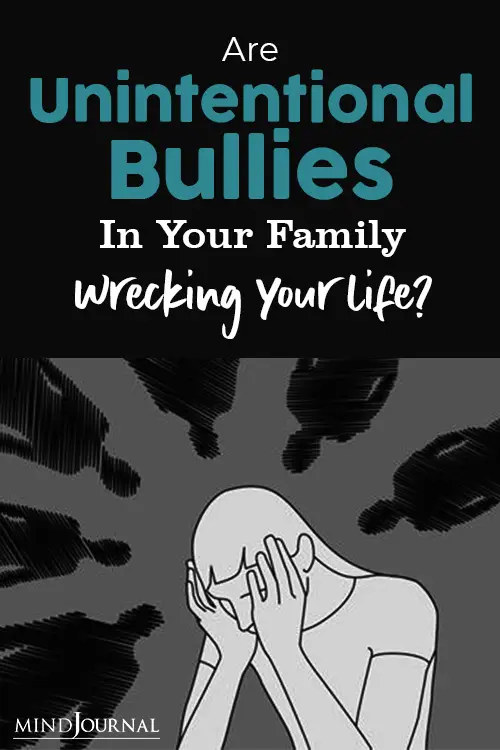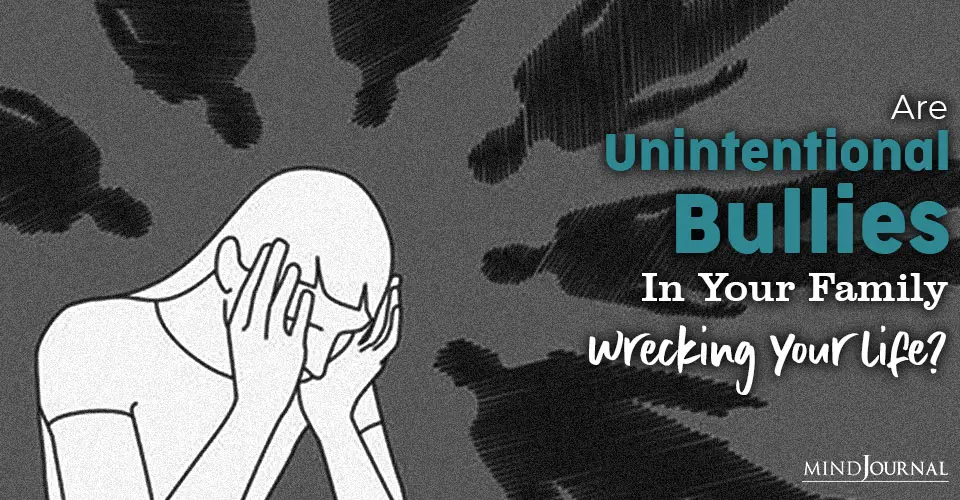Sometimes your loved ones think that they can run your life better than you and that they will always know what’s best for you, more than you ever will. Even if the sentiments are right, sometimes they end up as unintentional bullies who stop you from doing what you want to do in life. For example, if you know scapegoating, you will understand why family scapegoats become lifelong victims, of family bullying and toxicity.
We’ve all been there. Whether it’s a business we’re excited to start or a relationship we know must end, we finally have clarity about some major element in our lives and we reach a point where the possibilities after the change excite us more than our fear of the change itself.
So we start telling friends and family our grand plans genuinely expecting to hear things like, “I know you can do it” and “I’ve been waiting for you to see your own worth!”
Instead, some of the people we trusted to have our backs surprise us with messages like “I don’t think you have the right background,” or “do you have any idea how hard this is going to be?!”
Let me introduce you to, what I like to call, the “unintentional bullies” in your life. They don’t mean to hurt you, in fact, they think they’re being helpful but you walk away feeling beaten down and doubtful after talking to them, then struggle to have faith in yourself, your dream, and especially your Truth (with a capital T).
These conversations also make you a lot less likely to seek support from them or anyone else during a time that you really need it the most. There is hope, however, and luckily for both of you, a little understanding goes a long way.
3 Types of Unintentional Bullies You May Know
1. The Nurturer
Often, the people who love you the most are the ones closest to home. It can be as obvious as your mother or anyone who has played a care-taking role in your life.
The most important element in this relationship is that they’ve invested themselves in you. They’ve helped you grow, and they’ve been there for you through thick and thin.
They love you so deeply that they just don’t want to see any harm come to you. In their efforts to shelter you they try to talk you out of your own instincts and dreams. They say things like, “Keep the ‘safe’ job; your vision is too risky,” or “You can’t move to a vineyard in Spain on a whim; you’ll have to start all over!”
The Nurturer easily recalls past trials and quickly envisions all of the potential obstacles. She prioritizes safety over fulfillment.
2. The Expert
Thank goodness there are people who’ve gone before us in all life’s endeavors. Sometimes there is that person, who in all fairness, has a helpful breadth of knowledge and experience but who sees a singular blueprint for building a life and misguidedly discounts your own development.
They are constantly telling you how they did it and when you act independently of their advice, The Expert cannot understand why you didn’t “listen” to them.
The Expert doesn’t want to fix it unless it’s broken. She sees any differing choice as a waste of time reinventing the wheel and prioritizes efficiency over growth.
Related: Why Highly Sensitive People Get Bullied In Life
3. The Taskmaster
There are also people who wholeheartedly embrace your vision so fervently that they make you feel like you’re not moving quickly enough.
They’re excited that you have a direction and a passion for something and you soon find them hanging over you with a To-Do list in one hand and a whip in the other. They cannot understand why you’re deliberating, processing, meditating and conversing when you should just be doing, doing, doing.
The Taskmaster sees life as a series of “to-dos.” He’s flummoxed by the “to be” or “I am.” They’re a suck-it-up-and-get-on-with-it kind of person who prioritizes circumstantial results over organic process.
There are two characteristics all unintentional bullies share: They each believe in a singular “right” way to live life. It is difficult for them to see other “right” ways. And they want the best for you.
So, how do you deal with these unintentional bullies? Well, I’ve created some dos and don’ts that might make it just a bit easier.
Don’t:
1. Don’t try to educate them.
Their frame of reference comes from their life experience, and they’re much more concerned that you’re not hearing them than they are that they might be misinformed.
2. Don’t discount their advice.
They’re probably quite right in a lot of ways and offer a unique view of you and your choices that you cannot see on your own. Be thankful they have the courage, to be honest with you.
3. Don’t walk away mad.
Part of their insistence is a fear that they’re losing a connection with you. Giving up on the conversation feels like you’re giving up on them and may only make them push you harder.
4. Don’t let them talk you out of your Truth.
You’re being guided to do your best work in life. These are often hard, misunderstood decisions. Do not wait for your unintentional bullies to get it. The only person who really has to get it is you.
Related: How Family Scapegoats Become Lifelong Victims
Do:
1. Let them know they’ve been heard.
Often they feel like you’re just misinformed or naïve. Repeat back to them what they’ve said so they know that you take their input seriously.
2. Point out where their choices were good for them.
People feel invalidated when you say you’re making a different choice from the one they made for themselves. They’re afraid you’re telling them they did something wrong (otherwise you’d be doing exactly what they tell you to do). Showing them that you can see the benefit of their choices in the context of their lives calms their defensive position.
3. Do set healthy boundaries.
It’s OK to remind them that just because you’re not following their advice doesn’t mean you haven’t listened to them. If you need to set a rule that the subject is off-limits, that’s fine too. Just make sure that you’re consciously working on the relationship in other ways. These people are incredibly valuable to your well-being. Treat them that way.
Above all … let them know they’re still cherished. Remember, they’ve invested so much in you. While they’re not necessarily looking for a return on investment, it sure helps to spell out to them exactly why they’re loved and valued in your life. Love is always stronger than fear and it will go a long way toward keeping and healing the relationships that mean the most to you.
Written by Triffany Hammond Originally appeared on Yourtango Printed with permission from the author










Leave a Reply
You must be logged in to post a comment.